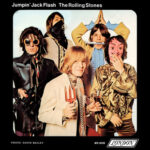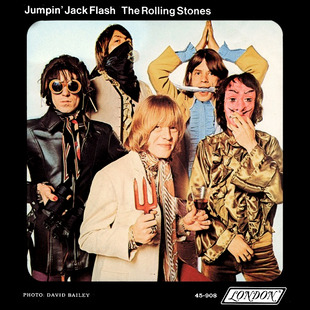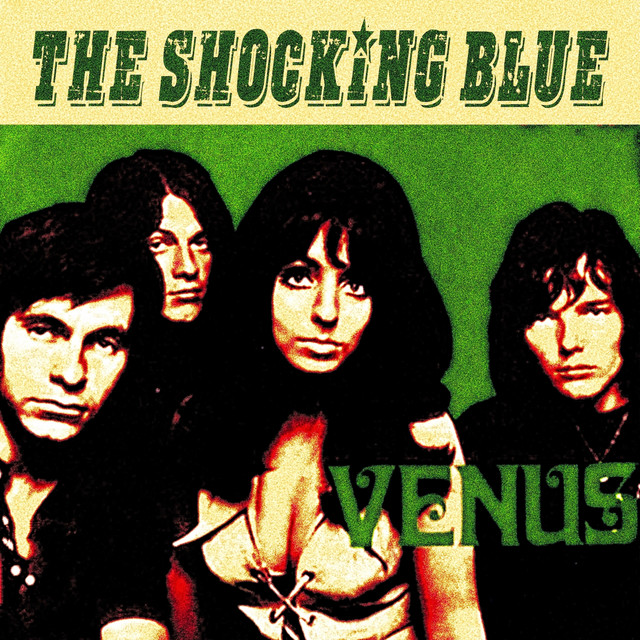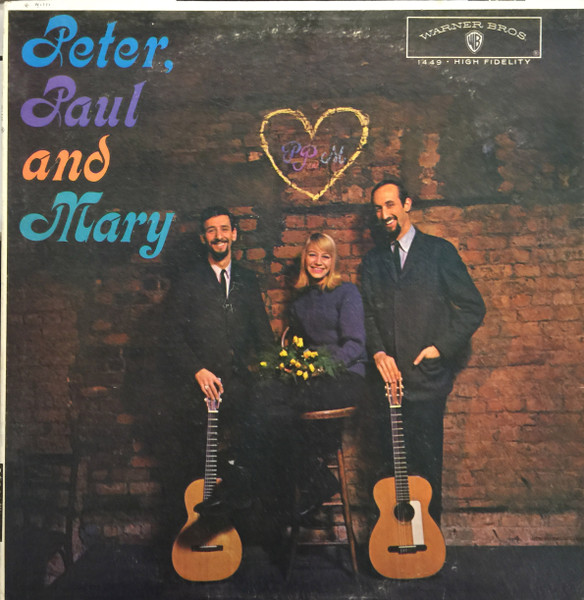 There are rock songs, and then there are detonations. “Jumpin’ Jack Flash,” released in 1968 by The Rolling Stones, doesn’t so much start as it erupts—a gritty, swaggering blast of defiance that sounds like it clawed its way straight out of the mud. It was a rebirth, both for the band and for rock itself, coming at a moment when the Stones were desperate to prove they were still dangerous, still vital, still the world’s greatest rock and roll band.
There are rock songs, and then there are detonations. “Jumpin’ Jack Flash,” released in 1968 by The Rolling Stones, doesn’t so much start as it erupts—a gritty, swaggering blast of defiance that sounds like it clawed its way straight out of the mud. It was a rebirth, both for the band and for rock itself, coming at a moment when the Stones were desperate to prove they were still dangerous, still vital, still the world’s greatest rock and roll band.
From the first slashing guitar riff, “Jumpin’ Jack Flash” feels primal and unstoppable. The track is lean and mean, built on swagger, sleaze, and a kind of spiritual electricity. It’s a song that makes you stand taller, sneer harder, and believe—if only for three and a half minutes—that you, too, were “born in a crossfire hurricane.”
A Return from the Edge
By 1968, The Rolling Stones were in a strange place. Their psychedelic detour on Their Satanic Majesties Request had been met with mixed reviews, and critics were starting to question whether the band had lost its edge. The Beatles were dominating the charts with Sgt. Pepper and The White Album. Meanwhile, the Stones—who had built their identity on danger, rebellion, and raw sexuality—were flirting with the very kind of self-indulgence they once mocked.
“Jumpin’ Jack Flash” was their answer to all of it—a return to roots, a ferocious exorcism of excess. Mick Jagger later said it marked the point where they rediscovered their sound. It was back to blues, back to groove, back to the street.
Keith Richards came up with the riff while strumming his guitar early one morning, hearing the footsteps of his gardener, Jack Dyer, outside. When Jagger asked what the noise was, Richards reportedly quipped, “Oh, that’s Jumpin’ Jack.” The phrase stuck—and what followed was a song that felt like a myth being born in real time.
The result was pure alchemy: Jagger’s sneer, Richards’s jagged riff, Charlie Watts’s bulletproof groove, and Bill Wyman’s ghostly bass locked together into something elemental. This wasn’t psychedelia. It was survival.
The Riff Heard Around the World
There’s a reason the opening guitar line to “Jumpin’ Jack Flash” is one of the most instantly recognizable in rock history. It doesn’t shimmer—it stings. It’s played through a Gibson Hummingbird acoustic guitar, run through a Philips cassette recorder, which added that glorious distortion and compression that made it sound electrified even before the amps came in.
That accidental tone became legend. It’s sharp, dirty, and kinetic, like a switchblade flicking open in an alleyway. It’s not about technical prowess—it’s about feel. Keith Richards once said, “If you’ve got one riff that people recognize, you’ve got a career.” With “Jumpin’ Jack Flash,” he had his Excalibur.
And it’s not just the riff—it’s the rhythm. Charlie Watts’s drumming is a masterclass in restraint. He doesn’t overplay; he anchors. Every snare hit lands like a punctuation mark. The groove feels both unstoppable and effortless, as if it’s been there since the dawn of rock itself, just waiting for someone to tap into it.
Lyrics of Defiance and Survival
Then there’s the lyric—part autobiography, part myth-making. The song opens with one of the most iconic lines in all of rock:
“I was born in a crossfire hurricane / And I howled at my ma in the driving rain.”
It’s pure poetry—violent, biblical, and funny all at once. It’s Jagger crafting his own mythology, positioning himself as a survivor of chaos and pain who came out not broken, but bulletproof.
The chorus—
“But it’s all right now, in fact it’s a gas / But it’s all right, I’m Jumpin’ Jack Flash”—
feels like an anthem of resilience. It’s a middle finger to despair, to critics, to the world itself. It’s the sound of getting knocked down and laughing as you get back up.
The verses are filled with cryptic images—“I was raised by a toothless, bearded hag,” “I was drowned, I was washed up and left for dead”—that blur autobiography with bluesy folklore. You can interpret them as a metaphor for the Stones’ own survival in the rock and roll jungle, or as a kind of universal struggle against the weight of the world. Either way, it works because it feels true.
That’s the genius of “Jumpin’ Jack Flash.” It doesn’t matter whether you know what every lyric means. You feel the fire behind them.
The Sound of Dirty Resurrection
Part of what makes “Jumpin’ Jack Flash” so enduring is its sound. It’s not polished—it’s alive. Every element buzzes with tension. The guitars sound gritty and raw, like they’ve been soaked in whiskey and sweat. The rhythm section feels like it could go off the rails at any second but never does.
This was the moment the Stones found the sound that would define their golden era—gritty blues-infused rock that was both menacing and irresistible. The song set the tone for the next run of albums—Beggars Banquet, Let It Bleed, Sticky Fingers, and Exile on Main St.—arguably the greatest four-album streak in rock history.
“Jumpin’ Jack Flash” was the spark that lit that fuse. It was them saying, “We’re back.” And not just back—they were reborn.
Mick Jagger: The Rock Messiah
It’s impossible to talk about “Jumpin’ Jack Flash” without acknowledging Mick Jagger’s performance. This is Jagger at his absolute best—slippery, sly, snarling. He doesn’t just sing the song; he inhabits it. His delivery is equal parts preacher, snake, and showman, turning every line into an incantation.
Jagger was entering his most magnetic era here—the point where his swagger became an art form. On “Jumpin’ Jack Flash,” he sounds untouchable, like a man who’s looked death in the eye and winked. It’s that combination of confidence and danger that would define his entire persona.
He’s not just performing a song—he’s declaring one. And when he belts, “But it’s all right now,” you believe him.
Keith Richards: The Architect of Grit
For all of Jagger’s charisma, “Jumpin’ Jack Flash” belongs just as much to Keith Richards. This is his sound, his riff, his swagger. It’s the kind of guitar work that doesn’t need flash to make an impression. Every chord is played with muscle memory, instinct, and a touch of menace.
Richards has always been more about texture than technique, and here he paints with mud, smoke, and gasoline. The riff doesn’t soar—it grinds, clawing its way forward. That’s the essence of Richards’ genius: making something feel ancient and inevitable.
It’s no wonder this song became a permanent fixture in their live sets—it’s practically written in his DNA.
A Defining Live Moment
Speaking of live performances—“Jumpin’ Jack Flash” is the Rolling Stones concert song. It’s their battle cry, their resurrection hymn. No matter the era, no matter the tour, it’s the one that gets the crowd to their feet.
At Altamont in 1969, it was the soundtrack to chaos. During their massive 1972 American tour, it opened shows like a thunderclap. Even in their later years—stadiums full of flashing lights and massive screens—it’s still the moment when Jagger prowls the stage, Richards leans into the riff, and time itself seems to pause.
There’s something primal about the way audiences respond to it. It’s like the collective release of every ounce of pent-up energy and rebellion. You can be 19 or 69—it doesn’t matter. When those first chords hit, you’re alive again.
The Cultural Shockwave
“Jumpin’ Jack Flash” has become more than just a song—it’s a shorthand for rock and roll rebellion itself. The phrase “Jumpin’ Jack Flash” has entered the cultural lexicon, symbolizing swagger, toughness, and survival.
It’s been covered by everyone from Aretha Franklin to Tina Turner to Johnny Winter. Aretha’s version in particular reimagined it as a gospel-soul explosion, turning the Stones’ grit into a celebration. Each version pays tribute to that indestructible core energy the original tapped into.
It’s also one of the most frequently licensed Stones songs in film and television. From Mean Streets to Whoopi Goldberg’s Jumpin’ Jack Flash, to Fear and Loathing in Las Vegas, the song’s defiant groove has scored countless moments of chaos, mischief, and catharsis. It’s shorthand for rebellion done right.
Lyrical Myth vs. Reality
Part of the song’s power lies in its mythic quality. Over the years, fans have tried to decode its meaning. Was “Jumpin’ Jack Flash” a character? A metaphor for Jagger himself? A symbol of the band’s resurrection?
The truth, as usual with the Stones, is somewhere in between. Keith has said it was partly inspired by his gardener, but also by the feeling of being “through hell and back.” Jagger later described it as a song about resilience—about getting through life’s storms and coming out the other side grinning.
That’s what makes it timeless. It’s not just about one man—it’s about all of us. Everyone who’s ever been beaten down, laughed at, or written off, only to rise again. “Jumpin’ Jack Flash” isn’t just rock—it’s survival music.
The Enduring Spark
Over fifty years later, “Jumpin’ Jack Flash” still feels like it was recorded yesterday. That’s the magic of it—it doesn’t age. It’s elemental, raw, and immortal.
You can play it in a club, at a wedding, on a road trip, or at a dive bar at 2 a.m., and it still works. That opening riff will always make heads turn. That chorus will always make fists pump.
It’s the purest expression of what The Rolling Stones are: defiant, alive, and a little bit dirty.
The Final Word
“Jumpin’ Jack Flash” is not just a song—it’s the essence of rock and roll. It’s rebellion turned into rhythm, swagger distilled into sound. It’s a reminder that music isn’t about perfection; it’s about electricity, danger, and soul.
The Stones would go on to make dozens of great records, but this was the one that defined their DNA. It was the sound of them reclaiming their throne and reminding the world that they were still the baddest band on the planet.
Every time those opening chords hit, you can feel that spirit surge again—the grit, the defiance, the sheer joy of being alive.
Yes, Mick and Keith have lived a thousand lives since 1968. They’ve been through crossfire hurricanes of their own making and walked out the other side still smirking. But through it all, one truth remains eternal:
It’s all right now.
It’s a gas.
It’s Jumpin’ Jack Flash.



